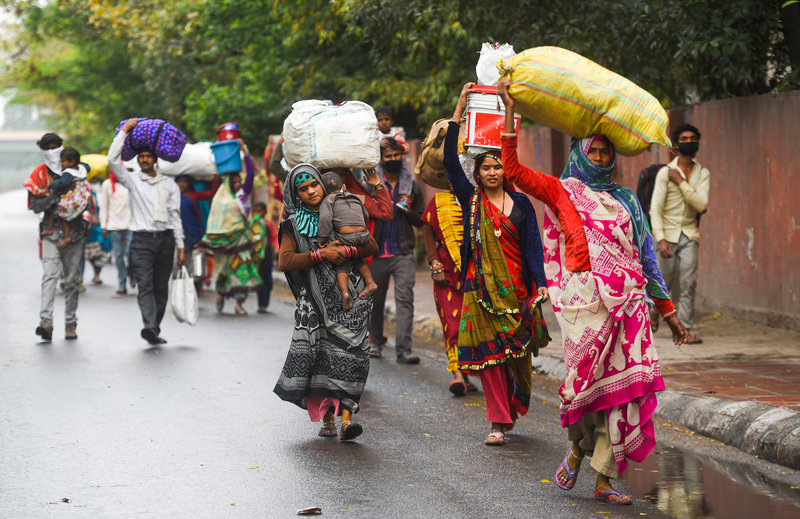This scheme removes the geographical limitations on ration cards. Thus, it would have proven to be a boon for the migrant workers amid the lockdown. 12 states are already implementing the scheme. A total of 20 states will implement from 01.06.2020. However, the question that bothers many is would an early implementation of the scheme help in this fight against COVID-19? Or is it too late for early implementation? Let us understand the scheme in order to answer these questions.
About the Scheme
The scheme is a part of the Government’s larger plan of “Integrated Management of Public Distribution System (IM-PDS)”. Its objective is to introduce nation-wide portability of ration card holders under the National Food Security Act, 2013 (NFSA). It enables migratory ration cardholders to avail their entitled food grains from nearest Fair Price Shop (FPS). This can be done by using their existing ration cards, so no new ration cards are needed. However, biometric authentication is required. This authentication will be done on electronic Point of Sale devices installed at the Fair Price Shops.
Pitfalls
While the scheme does sound like a good plan, it is not a fool-proof one. It has the potential to disrupt the Public Distribution System (PDS) in the country. This is because of the logistical issues surrounding it. Government allots grains to the Fair Price Shops in accordance with the number of ration cards assigned to it. This is a result of following the age-old PDS system in the country. Hence, before ‘One Nation One Ration Card’ scheme comes into force, the system needs to be modified to avoid chaos.
Another issue is with the data that the Government follows. The Central Government allots the food grains to the state governments who further allots them to fair price shops. In doing so, the Centre follows the 2011 census data. While this does cause several problems in general, it will create more once the scheme is implemented. This is because the number of beneficiaries per state would no longer remain uniform. The Centre might have to initially allocate more food grains to each state to avoid shortage.
Directions of the Supreme Court
Two lawyers filed a Public Interest Litigation related to the scheme in the Supreme Court of India. The petitioners urged the Court to direct the Centre for immediate implementation of the scheme. This, they argued, would help migrant workers, and help protect the rights of the beneficiaries during the lockdown. The apex court appeared to be rather unimpressed by the petition. Nevertheless, it did issue directions to the Centre asking to consider the viability of earlier implementation.
Impact of Early Implementation
Let us assume that the Centre does implement the scheme earlier. The question that still remains is whether it is too late for such early implementation? Experts are of the opinion that the “One Nation One Ration Card” scheme could have helped avert the migrant crisis. The opinion seems to be appropriately reasoned. Several migrant workers decided to walk hundreds of miles to reach home. Perhaps, one of the reasons that motivated them to embark on such a remarkable journey was food. The lockdown had led to a loss of their livelihood. Therefore, they were obviously dependent on their ration cards for food. They had to use their ration cards eating dust back home, since the respective state governments allot the food grains to the fair price shops.
Whatever their reason may have been, the scheme would have at least helped achieve confidence of some of the workers. This is so because the scheme works on per capita basis. Therefore, the migrant worker can avail benefit in his city and his family can avail benefits back at home. Nevertheless, it is not too late for early implementation. It is late but not as much so as to make earlier implementation completely futile. The scheme is a tremendous opportunity to protect the rights of migrant workers; especially during the times of COVID-19. The Government, however, needs to take care of the logistical issues.

